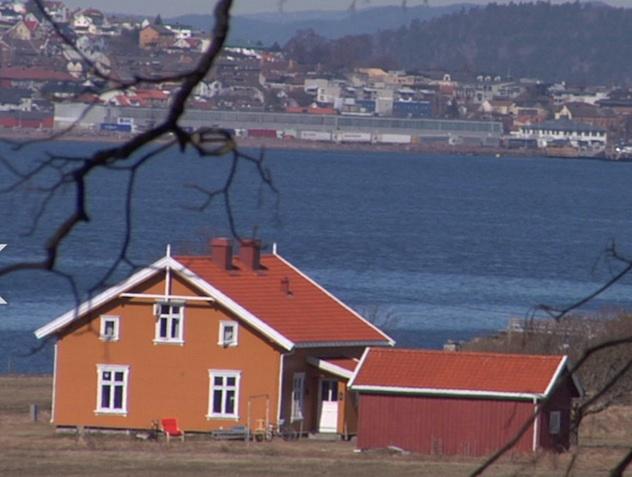Norway’s ‘summer camp’ prison emphasizes rehabilitation
Photo of Bastoy Prison in Norway. (Photo Courtesy of Vbs.tv)
Story from Here and Now. Listen to audio for full report.
Visitors to the island prison of Bastowey in Norway could be forgiven for mistaking the place for a summer camp. Inmates swim and hang out on the beaches, and there are soccer fields and horses. There were no walls or chains, and the guards carried no weapons.
“It truly has all the markings of summer camp,” said Vice TV Reporter Ryan Duffy, who visited Bastowey in April, 2010.
The prison’s setup reflects a deep belief in rehabilitation, according to Duffy. The prison’s warden told him: “This is an area for building trust, responsibility and take charge of your own life. So we are training inmates to be aware that you are a part of something bigger.”
That trust even extends to the use of chainsaws. “Agriculture and farming is a huge part of the island and what the prisoners are asked to do so there are axes, there are chainsaws, there’s picks and all sorts of things that when you think about US prisoners not being able to have things as simple as belts seem really jarring.”
Bastowey is considered a low-security prison, and officials emphasized to Duffy that there are high-security prisons without the lax rules. So Anders Breivek, the Norwegian who confessed to shooting over 70 people recently, likely wouldn’t end up there. But there are criminals in Bastowey who have committed serious crimes. In fact, Duffy reports that one inmate was in there for killing someone with a chain saw. And he was out in the fields, working with a chainsaw.
The belief in rehabilitation seems to be working on a certain level, too. By many measures, Norway has lower recidivism rates than the U.S. According to Time Magazine, “within two years of their release, 20 percent of Norway’s prisoners end up back in jail. In the U.K. and the U.S., the figure hovers between 50 percent and 60 percent.”
Many of the inmates in the prison “really internalized the warden’s message and the overall thinking there which is, ‘we’re going to be back in society one day and we need to learn to change our heads,'” Duffy reports. “You don’t do that behind bars. You do that by interacting with other people by building social skills by having responsibilities, and by being accountable.”
——————————————————
“Here and Now” is an essential midday news magazine for those who want the latest news and expanded conversation on today’s hot-button topics.
Our coverage reaches millions each week, but only a small fraction of listeners contribute to sustain our program. We still need 224 more people to donate $100 or $10/monthly to unlock our $67,000 match. Will you help us get there today?
